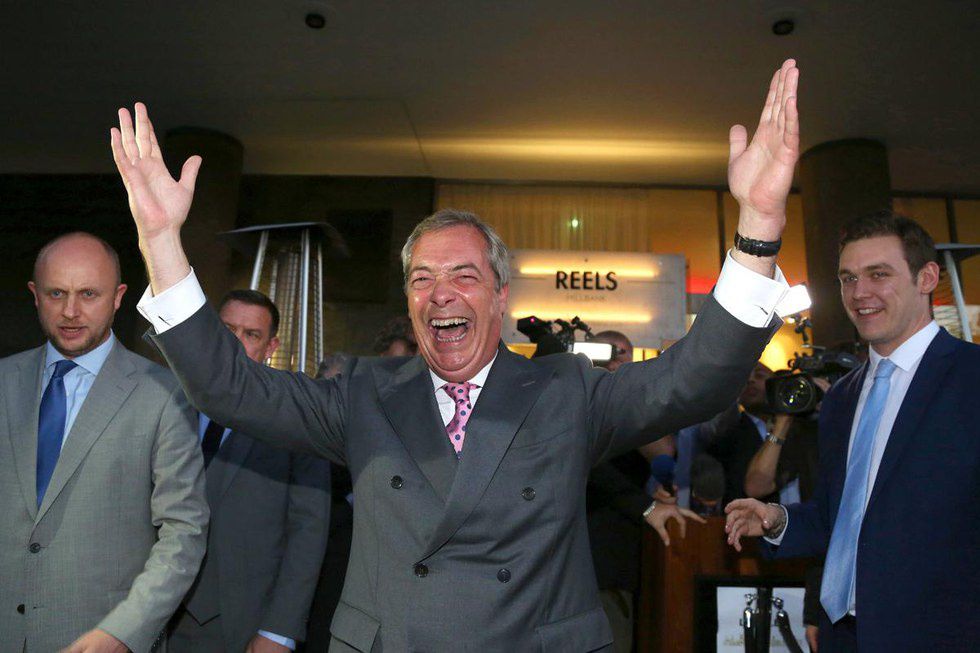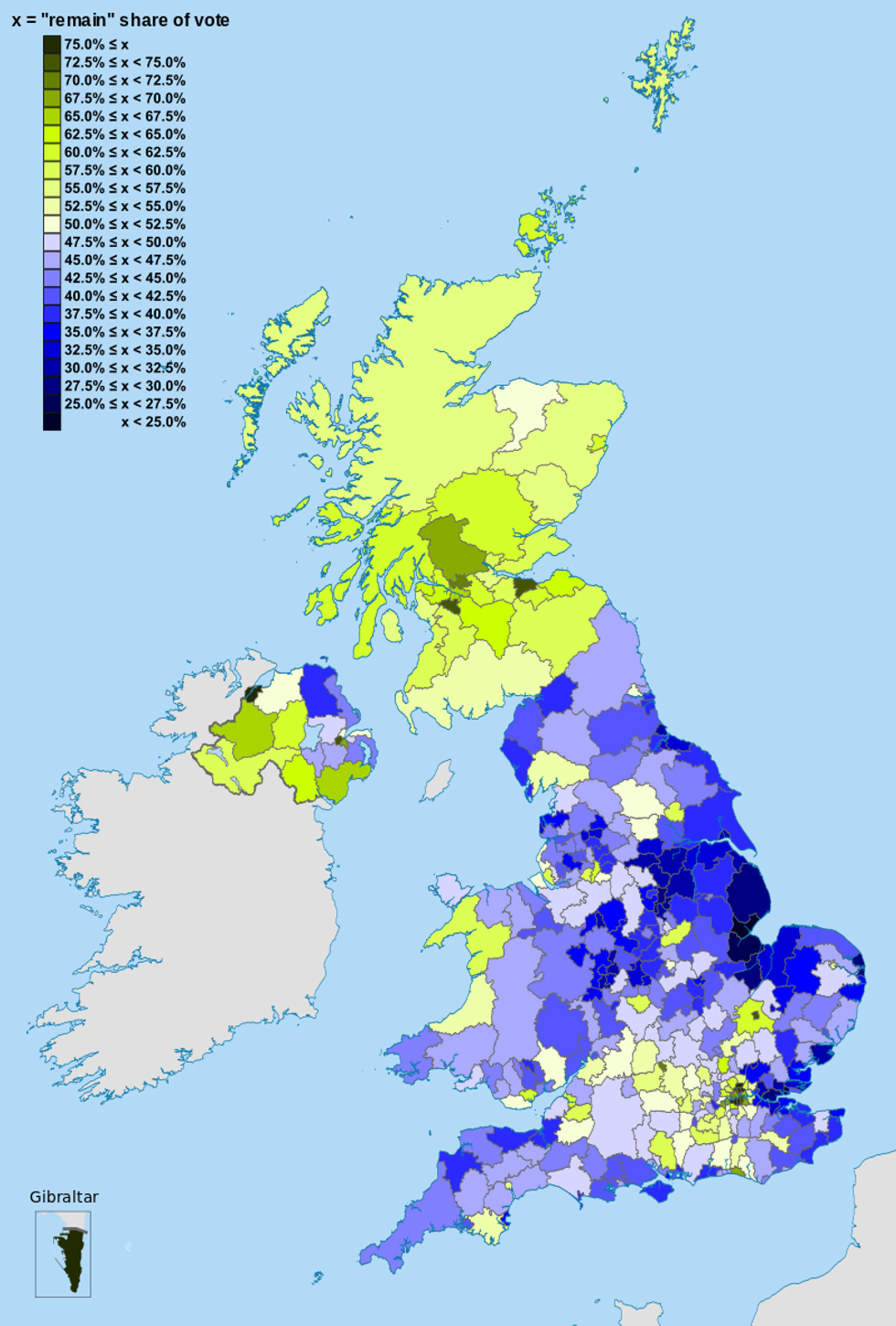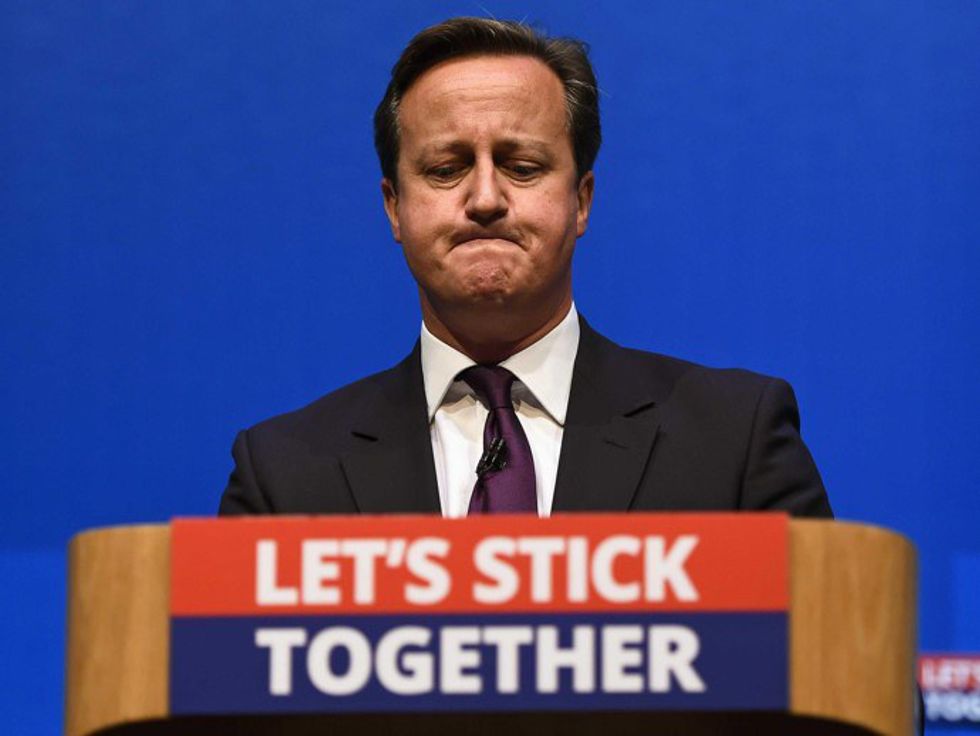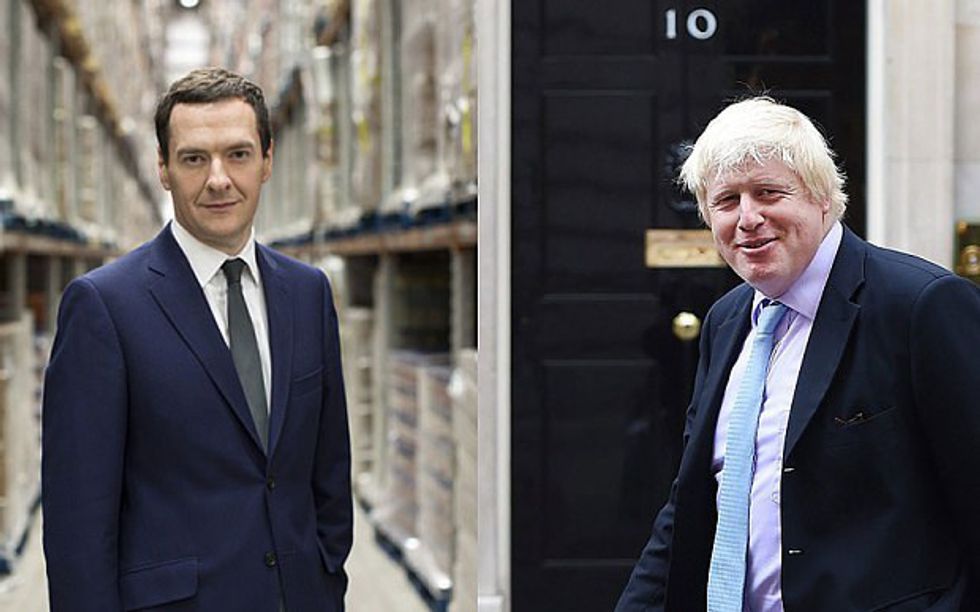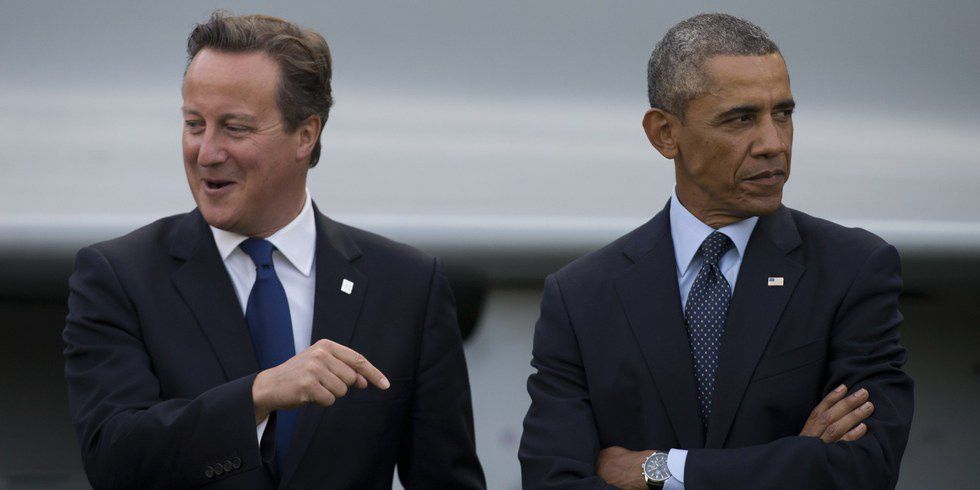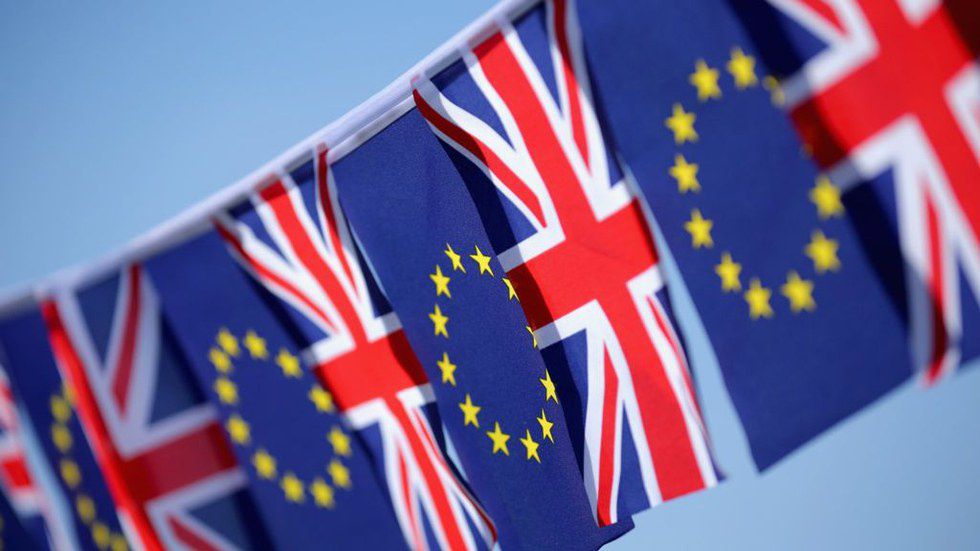June 23, 2016 will go down as one of the most historic days in European history. Just 41 years ago, Britain held a much different referendum that maintained the UK as a member of the EU, it was passed 67 to 32 percent. After joining in 1973, Britain quickly became one of the leading powers of the EU, but chose not to intertwine its economy with its neighbors.
Britain has just voted to leave the EU and the West faces uncertainty. Those who voted for the United Kingdom’s disenthrallment from the EU cited that they wished for their country to regain control over its own laws, free from the interference of an undemocratic foreign government, and stop the unending flow of immigration across the open borders of Europe.
On the night of June 23, Nigel Farage (pictured below), the leader of the UK Independence Party (UKIP) advocating for the Brexit campaign, celebrated Britain’s extraction from the EU and promised a bright future for the United Kingdom. Renewed interest rates, new and freer trading opportunities, and increased sovereignty are all things that the UKIP party leader proclaims Britain will enjoy following the vote.
Though the referendum will provide many new opportunities, it will also have many untold consequences.
The vote to leave the EU, likened in some places to a vote of secession, sharply divided the British people. England’s largest urban centers like London, Manchester, and Cambridge voted to remain in the European Union, while its rural regions chose to leave. The Welsh population was nearly evenly split between Brexit and Bremain. The most shocking result, however, is how overwhelmingly Scotland and Northern Ireland voted to remain in the EU. Both of these realms of the UK enjoy EU-sponsored subsidies, economic incentives the British government could not afford to pay.
As a result of the referendum, Scotland and Northern Ireland, who both unequivocally wish to remain a part of the European Union, have proposed separate referendums of their own. Nicola Sturgeon, the First Minister of Scotland, has called on the Scottish Parliament to announce a second independence referendum to allow the Scottish people to determine their own future as either an independent state and member of the European community, or a subject of the United Kingdom.
The Sinn Fein, the governing council of Northern Ireland, as also has called for its own popular referendum. But, instead of seeking independence, the Sinn Fein is pushing for a referendum to secede from Britain and unify with the Republic of Ireland, finally completing what many Irish citizens have been working toward for nearly a century. Ireland itself is a member of the EU.
The referendum hasn’t just divided the UK’s inner political entities, but it has divided its citizens as well. Urban middle class were pro-Remain while the older and millennial voters were Brexit. Britain’s parties were equally divided, as many of its left-leaning parties, such as the Liberal Democrats and the Labour Party, were staunchly pro-Bremain but its right-leaning parties remained pro-Brexit.
It is not surprising that both the Scottish National Party, now leading Scotland’s independence referendum, and the Sinn Fein were pro-EU. The current ruling Conservative Party itself was deeply divided, though its leading faction, led by Prime Minister David Cameron, was officially neutral on the subject. The UK Independence Party celebrated its victory and forged a remarkable voter base overnight.
Another major consequence is that the referendum may have put the Conservatives’ control over the British Parliament in jeopardy. In the 2015 general election, in which the Conservative Party won by huge margins, incumbent Prime Minister Cameron promised voters he’d push for a referendum for the UK to leave the European Union. However, many pundits believe that the Conservatives did not expect any such referendum to actually pass. As a result, David Cameron has announced his impending resignation.
Expecting Cameron to be out of office within the next three months, most political experts believe the Conservative Party will elect a new prime minister prior to their party conference in October. Unlike in the US, where we elect our presidents by a popular and electoral vote, the British Parliament selects their head of government. When a political party gains control of the Parliament, their party leader is elected prime minister. With David Cameron’s resignation there is no designated successor to the office, unlike in the United States where the vice president assumes the office of the president following his or her death, resignation, or impeachment. Parliament’s ruling party, the Conservatives, would select two candidates for the premiership.
It is believed the Conservative Party will nominate the former Mayor of London Boris Johnson as one of their nominees. Johnson himself is a prolific and controversial figure in British politics who is viewed as a populist and nationalist. He previously advocated for either a stronger role for the UK within the EU or a removal of his country from its membership. Boris Johnson has often been equated to the presumptive Republican presidential nominee Donald Trump in appearance, speech, and mannerisms. The other likely nominee is Chancellor of the Exchequer George Osborne, who was Cameron’s favored successor prior to the referendum, but a pro-Remain candidate. Osborne’s position is the equivalent to the US Secretary of the Treasury.
With the UK’s political future uncertain, so too is Europe’s.
With Britain’s withdrawal, Germany is asserting its role as the EU’s sole major power. Since Germany’s 1989 reunification, Germany has been taking a larger role in the EU, even rivaling Britain in influence within the Union. Without Britain standing as a check against Germany’s growing monopoly over many EU member states’ fragile economies through large governmental loans, Germany could see an economic ascension as a world power once again.
And Germany is not waiting. Within hours of the referendum, German Chancellor Angela Merkel called a summit of the EU’s heads of state to discuss the future of the European Union sans-Britain.
Outside of Germany, citizens of many of the EU’s largest members are calling for similar referendums. The French National Front, led by Marie Le Pen, has called for a “Frexit” referendum. In Italy and Austria, large masses of citizens are calling for similar votes to determine their own laws and govern their own borders. But the consequences have spread not just across Europe, but the Atlantic as well.
Many believe this will bring America and Britain even closer together as global partners. Not just in terms of new economic opportunities, but in prosecuting their joint War on Terror and promoting liberal democratic ideals throughout the world. Together they will stand as a check against Russia’s growing influence within Eastern Europe; Britain often cited the EU for stifling Britain’s opportunities to deter such influence. Without the EU hampering Britain's foreign affairs, Britain could have a larger say in the affairs of NATO, which is still a largely US-led alliance. The UK’s referendum appears to have no ramifications within the North Atlantic alliance itself, other than to provide it new opportunities to function outside of the EU’s cookie cutter foreign policy ideas.
The magnitudes of the UK’s removal from the EU may have its own effects here in the United States, half a world away. These effects, however, are viewed by both the British and American peoples as being mostly positive. The special relationship between the two nations will remain unbroken, but until the economic atmosphere following the referendum stabilizes there will be market freefall. Many economists believe that once stabilization takes place, it will become much easier for American and British companies to deal and trade with one another without having to trudge through EU regulations.
America’s presidential candidates were not openly pro-Bremain. Hillary Clinton maintained a neutral posture on the matter while Donald Trump was vehemently pro-Brexit. President Obama, however, drew criticism from the British press and the British people for his outreach straight to British voters to remain. Speaker of the House Paul Ryan lauded Britain for choosing its own path and stated that the relationship between the two nations remained unaffected.
Even in the United States, the American people remain divided on the issue, like our British cousins. This is an issue that will remain for the long term and will have consequences for decades to come. Whether those are good or bad, no one knows. But the majority of the Brexit supporters believe their sovereignty from the EU will open new and prosperous pathways for Britain. We may ultimately see an end to the United Kingdom, or the dawn of a new age for a stronger and more independent Britain, free of the laws of an unelected supranational government.
Only the future will tell.





